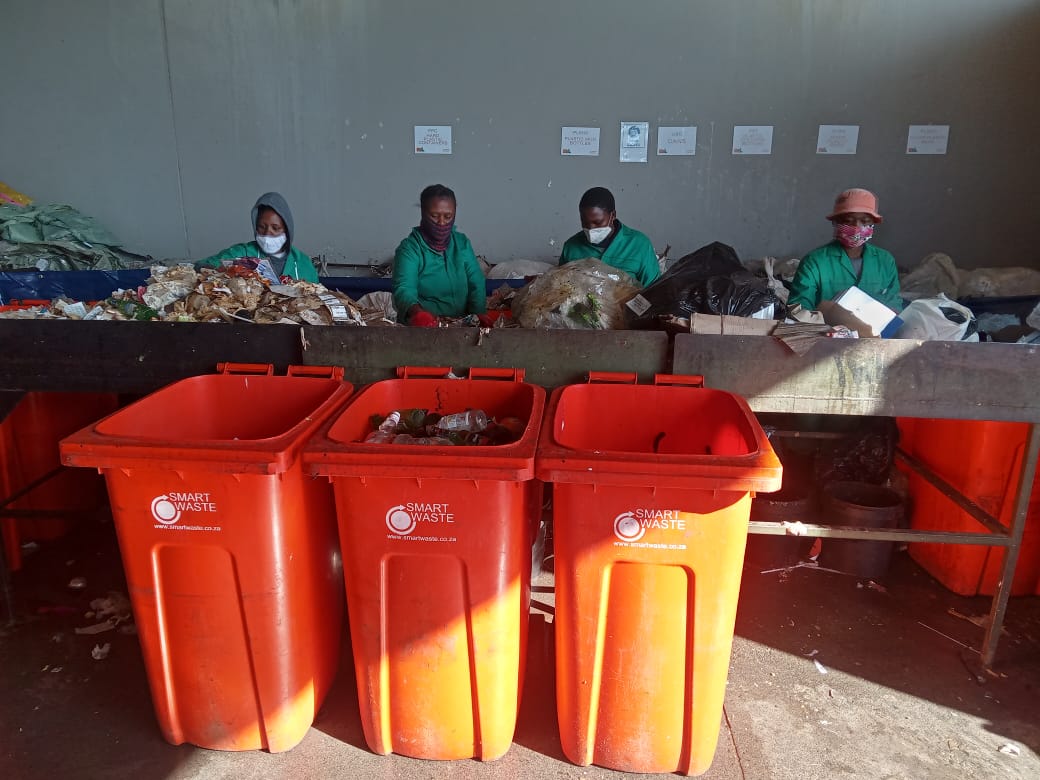Advertisement
Reduce your property’s environmental impact
@Sandton-Apartments is a prime example of an urban development softening our blow to the planet. Its waste management programme kicked off in early–2022 and efficiently reduces the building’s environmental impact by diverting waste away from landfills.
The multi-use Acsiopolis precinct is home to @Sandton-Apartments: 480 leased, purpose-built units in a variety of configurations spread over two high-rise towers, flanking the central @Sandton-Hotel.
Implemented by Smart Waste, the programme is designed to achieve sustainability goals set by the developers of Acsiopolis, and so reduce its carbon footprint.
‘We are committed to reducing our environmental impact and promoting sustainable living in our community,’ says Acsiopolis residential property manager Simoné Muller. ‘We hope it will inspire others to join us in our efforts to reduce waste to landfill.’
Incredibly cool stats
During the year up to March 2023, the recycling report for @Sandton-Apartments shows that total waste of 133,399kg was recycled, which resulted in an energy saving of 209,722kW and 538,145 litres less water used. This translates into a reduction of 82,335kgs in CO2 emissions, and equates to saving 345 trees.
The programme includes the installation of recycling bins and the implementation of a waste segregation system to separate organic from non-organic matter. The former is sent for composting and the latter is recycled or sent to a waste-to-energy plant.
Advertisement
Says Muller: ‘Our vision is to lead the way by eliminating the need for landfills though innovative solutions and a commitment to zero waste.’
Zero-waste vision
Toann Claassen is general manager at SmartWaste. With its footprint spanning centres countrywide, the company plays an integral role in the national energy, utilities, and waste-management industry.
‘The rest of the world is recycling very effectively – it has a lot to do with creating a mind shift. When our @Sandton-contract commenced last March, we started working with the various retail shops and restaurants.’
Claassen says as each new storey of residential apartments became available, they continued spreading the word – and that it’s great to be the messenger of good news: 90% of what lands in your bin can be recycled; even medical waste can safely be disposed of.
‘The stats we attain are impressive, industry-wide, and shared with residents monthly. For developers or property owners, it’s a case of balancing cost and sustainability. For some it’s a grudge purchase – you pay more for responsible waste management.
‘But take into account that municipal services countrywide are becoming less reliable, and the positive impact on the environment is priceless. Our data substantiate that responsible waste management is the way to go.’
The processing process
Typically, SmartWaste teams start by separating dry from wet waste; the fact that none of these items ends up in a landfill is inspiration enough for most residents to commit to the programme, they claim.
‘Together with our monthly reports, we put notices in public places to further our zero-to-landfill cause. We also take great care with the packaging of compost created from wet waste and organics.
‘It’s worth remembering that recycling supports large sections of many communities – the so-called ‘pickers’ separate recyclables and support families through what they earn in the process,’ says Claassen.
Good news for developers
When planning your estate, there’s no need to set aside vast tracts of land for waste-processing machines or storage of recyclables. Claassen explains that equipment for processing organic waste, for instance, can range from a five to 15-tonne capacity.
‘The biggest machines need the size of a double garage, which is negligible when large properties are concerned. But urban developments such as @Sandton-Apartments don’t have space available, so organics are collected in sealed 50-litre containers daily.’
Separating waste in such a way can vastly reduce municipal bills. Claassen also advises owners to negotiate with local companies for removal of clean recyclables, and to plough the compost produced from organic waste, back into the estate and community.
‘At Waterfall Mall in Rustenburg, so much compost is produced that we can dish it out for use in all local schools’ gardens. At Midstream in Centurion, we do regular drives – not only awareness of waste management and encouraging the right environmental choices, but also community drives such as river-cleaning days.’
Claassen concludes that the zero-waste quest starts at home and ripples out into the circular economy. ‘By making the right choices, whether buying everyday items that will be recycled or investing in a waste-management programme for your estate, we can collectively save the planet, one bag at a time.’



